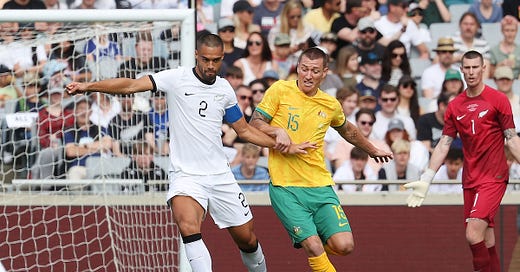A football writer writes
Bruce Holloway covers the football in a way I couldn't, Parker's dilemma, a wasted RWC opportunity, and the Mankad exposes cricket's cultural divide.
Having sat through a good portion of the 90 minutes of All Whites’ nothingness served up at Eden Park, I was feeling a bit toey.
It was a glorious early spring day. One of those rarities in these parts with little wind and only the vague threat of a shower. I thought of all t…
Keep reading with a 7-day free trial
Subscribe to The Bounce to keep reading this post and get 7 days of free access to the full post archives.




